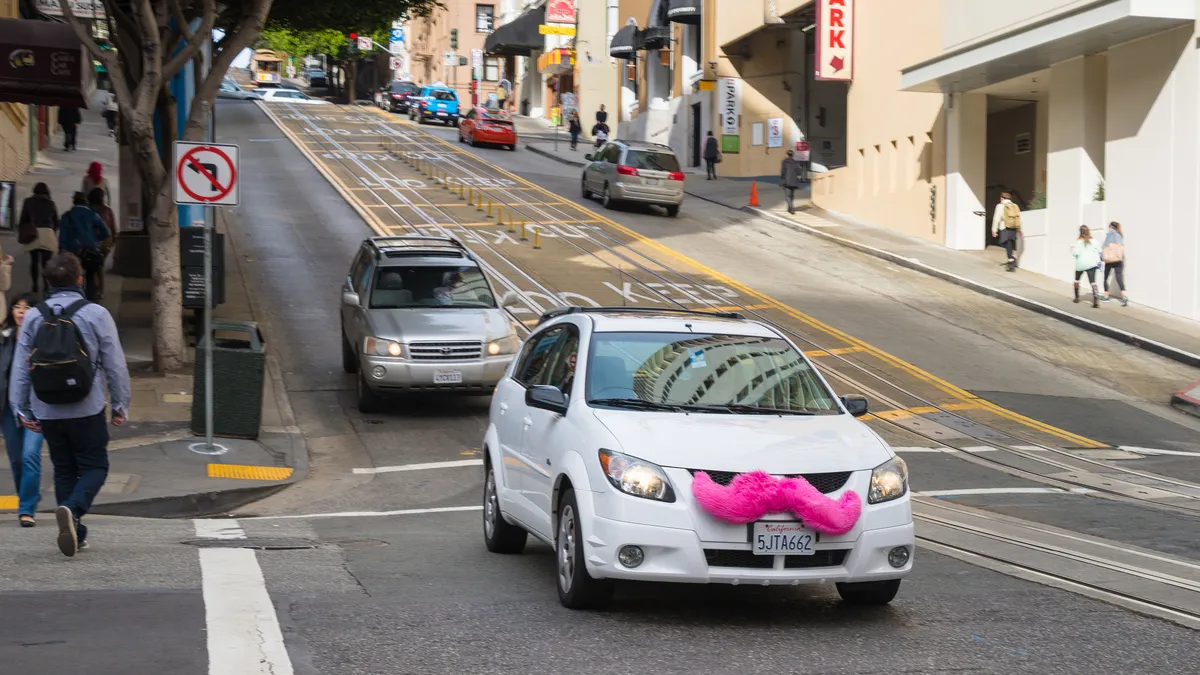Dive Brief:
- Gig economy companies including Lyft, Uber, DoorDash and Instacart are supporting a new California ballot initiative that would allow certain workers on the companies' apps to continue operating as independent contractors, according to a statement released Tuesday by the Coalition of Rideshare & Delivery Drivers.
- If passed, the ballot initiative would classify "app-based drivers" as independent contractors as long as the platform on which they perform work does not prescribe the hours drivers must log onto the platform, nor restrict them in other ways outlined by the proposal. It would also establish a "net earnings floor" for drivers that would be set at 120% of the state or local minimum wage, whichever is higher, along with 30 cents of gas mileage compensation per each mile the driver spends "engaged" (e.g., miles driven during the process of accepting, picking up and dropping off a customer). Platforms would also be required to pay drivers a quarterly healthcare subsidy.
- The companies previously spent millions of dollars in tandem with other gig economy platforms to oppose the state's recent legislation that would reclassify many ride-share drivers and other gig workers as employees on Jan. 1, 2020. The law, known as Assembly Bill No. 5 (AB-5), passed in September and was signed by Gov. Gavin Newsom that same month.
Dive Insight:
AB-5 may provide a shock to the gig economy in California, the state in which all four of the companies in the coalition have their headquarters. Tuesday's announcement indicates the platforms are keen to bring the issue of worker classification to the state's residents after a failed effort to defeat the law in the California State Legislature.
Before a ballot measure can be brought to a vote, California law dictates it must receive a required number of signatures to be submitted to and verified by election officials. Eligible measures must be qualified to appear on the ballot by the 131st day before a general election, the next of which takes place Nov. 3, 2020.
The coalition that created the measure is hoping to gather 1 million signatures by April 2020, Stacey Wells, a spokesperson for the coalition, told HR Dive in an interview Wednesday. Wells noted the measure had not been officially filed as of Wednesday, but that it would be filed by the end of the week.
As AB-5's Jan. 1 effective date approaches, California employers are waiting to hear whether the law's provisions will apply retroactively. That's the subject of an ongoing case in the 9th U.S. Circuit Court of Appeals; the circuit court withdrew its opinion on the matter in July, certifying it to the California Supreme Court for consideration. The law makes exemptions for several occupations, including certain medical professions, direct salespersons and commercial fishermen, among others.
More importantly, the law may soon inspire other states to adopt similar regulations, local attorneys previously told HR Dive.













